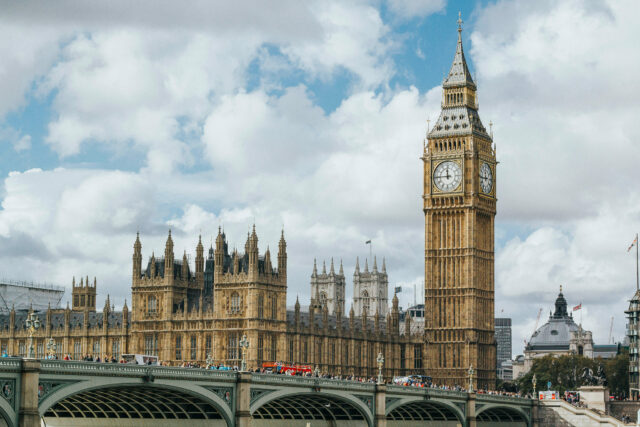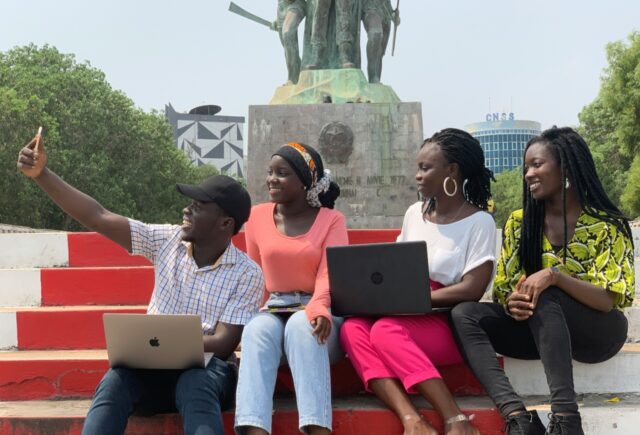Pluralis will use the funds to invest in independent media in countries in Central, Eastern and South-Eastern Europe where media diversity is under threat.

Pluralis, a Dutch-based investor in independent media companies in Europe, has raised €50m from a range of investors to support independent media organisations.
Investors include foundations and non-profits, such as g the King Baudouin Foundation, Oak Foundation, Limelight Foundation and KIM, as well as media companies, including Mediahuis and Tinius Trust.
Investment has also come from family offices, including Tradicor and VP Capital, German ethical bank GLS Bank, Austrian savings bank foundation ERSTE Stiftung as well as impact investors Soros Economic Development Fund and Media Development Investment Fund (MDIF).
Pluralis, which was launched as a Dutch limited liability company in 2021, operates an evergreen fund structure and is managed by MDIF, which invests in independent media companies globally. The company has raised just over €50m since launch and is targeting €100m, with no fixed date for raising the additional capital.
MDIF is one of the founders of Pluralis, alongside the King Baudouin Foundation, Mediahuis, Soros Economic Development Fund, Tinius Trust, KIM and VP Capital.
Speaking to Impact Investor, MDIF’s CEO Harlan Mandel said press freedom in many parts of Europe continued to deteriorate.
“Independent media face a range of threats including financial pressure, defamation and other lawsuits, regulatory measures and direct interference from politically-aligned owners,” he said.
In a profile published by Impact Investor last year, Mandel explained that Pluralis’s holding company design meant it could counter media ownership takeovers by governments or political actors, which threatened media plurality in Europe.
Commenting on this latest announcement, Mandel said that Pluralis’s blended financial ownership model also meant that investee companies benefited from a highly diverse ownership structure, which prevented “any perception of bias or external influence”, which he said was “crucial for maintaining their reputation for integrity and impartiality.”
“Moreover, investee companies are able to draw on a deep well of strategic and technical knowledge from Pluralis investors, helping them to optimise the investment and take advantage of emerging opportunities,” he added.
The fundraising announcement was made by Mandel at an EU meeting in Brussels on financing media freedom attended by the US ambassador to the EU, Mark Gitenstein, the European Commission’s vice-president Vera Jourova as well as leading thinkers, corporations, publishers, and financiers. The meeting was called to discuss solutions and new approaches to enhance private sector investment in support of independent media and a spokesperson for MDIF described it as “a first-of-a-kind opportunity to bring together a wide range of parties that have a deep interest in encouraging media plurality in Europe”.
The backbone of European democracy
Pluralis said that grounding each of its investments was the belief that independent and plural media contributed to informed citizenship, which was essential for the functioning of both democracy and the economy. The company referred to independent media as the backbone of European democracy, contributing to education, cultural development, inclusiveness of society, protection of fundamental rights such as freedom of expression and access to information.
The fund has already made three investments to date into Petit Press, Slovakia’s second largest publishing house, Gremi, publisher of the Rzeczpospolita daily economic and legal newspaper as well as a range of political, business and other websites in Poland, and Telegram, a rapidly growing digital news company in Croatia. Total investments to date represent an investment value of approximately €30m.
“Pluralis has already made three investments in important media companies in Central and South-East Europe, but much remains to be done,” said Mandel. “We are now ready to take the Pluralis model to more media companies in more countries where media pluralism and informed democratic debate are under threat.”
A spokesperson for the company said it was constantly scanning European media for opportunities in countries where media diversity was under threat and where there was a risk of capture, and that the funds raised were critical to enabling Pluralis to deploy capital rapidly when a company needed investment, without a strict timetable.
Press freedom on the decline
MDIF has long highlighted the dramatic and concerning decline in press freedom in many countries and regions around the world. According to 2023 World Press Freedom Index from Reporters Without Borders, the environment for journalism today is bad in seven out of ten countries, and satisfactory in only three out of ten. These findings are echoed by an earlier 2021/2022 UNESCO report which found that 85% of the world’s population had suffered a decline in press freedom in their country over the previous five years.
Mandel highlighted examples of countries where independent media was facing many pressures. In Hungary, Mandel said the ruling party and its allies owned and controlled hundreds of media companies and the government systematically ramped up pressure on independent outlets.
Another example is Serbia, which he said was also making it very difficult for media to operate with editorial independence. He also said that countries like Slovakia were also “starting to backslide”.
“However, inspiration for our belief that the tide can be turned can be seen in Poland, where Pluralis has two investees. In a very close election, late last year the ruling party was defeated and the new government is already taking action to restore balance and plurality,” he added.
Pluralis said its investment framework was explicitly non-partisan and that it invested in independent media companies practicing responsible high-quality journalism, regardless of editorial orientation.





